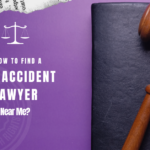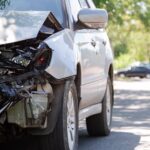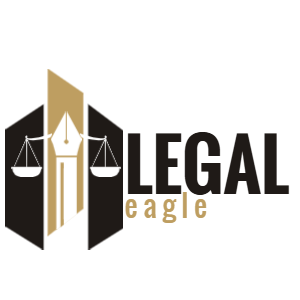Car Accident Lawyers Near Me Get the Help You Need
Car accident lawyers near me can be your lifeline after a devastating car accident. Navigating the legal complexities and insurance processes can be overwhelming, especially when you’re dealing with injuries and potential financial hardship. Finding a qualified and experienced car accident lawyer can make all the difference in protecting your rights and securing the compensation you deserve.
This guide will explore the critical role of car accident lawyers, the legal process following an accident, and the essential steps to take to ensure you’re well-represented and receive the best possible outcome. We’ll also address common concerns and provide insights into navigating the legal system effectively.
Understanding Car Accidents
Car accidents are a common occurrence in the United States, with millions happening each year. Understanding the causes, types, and consequences of these accidents is crucial for drivers, passengers, and pedestrians alike. This knowledge can help prevent accidents and ensure that individuals are prepared to handle the aftermath if they are involved in one.
Common Causes of Car Accidents
Driver negligence is the leading cause of car accidents. Common examples include:
- Distracted driving: Using a cell phone, texting, eating, or applying makeup while driving can take a driver’s attention away from the road, increasing the risk of an accident.
- Drowsy driving: Driving while tired or sleep-deprived can significantly impair a driver’s reaction time and judgment.
- Driving under the influence: Alcohol and drugs impair a driver’s coordination, judgment, and reaction time, significantly increasing the risk of accidents.
- Speeding: Exceeding the speed limit reduces a driver’s ability to react to hazards and increases the severity of an accident.
- Aggressive driving: Tailgating, weaving in and out of traffic, and road rage can lead to accidents.
- Failure to yield: Not yielding the right of way to other vehicles or pedestrians can result in collisions.
- Improper lane changes: Changing lanes without checking for other vehicles or signaling can cause accidents.
- Running red lights or stop signs: Disregarding traffic signals can lead to serious collisions.
Types of Car Accidents
Car accidents can occur in various ways, each with its unique characteristics and potential consequences.
- Rear-end collisions: These are the most common type of accident, often occurring when a driver following too closely fails to stop in time.
- Side-impact collisions (T-bone accidents): These occur when one vehicle hits the side of another, often at an intersection.
- Head-on collisions: These are the most serious type of accident, often resulting in severe injuries or fatalities.
- Rollover accidents: These accidents occur when a vehicle flips over, often due to high speed, loss of control, or a sharp turn.
- Single-vehicle accidents: These accidents involve only one vehicle, often caused by factors such as driver error, road conditions, or mechanical failure.
Statistics about Car Accidents in the United States
Car accidents are a significant public health concern in the United States. According to the National Highway Traffic Safety Administration (NHTSA):
- In 2020, there were 6.7 million car accidents reported in the United States.
- Over 39,000 people died in car accidents in 2020.
- Over 4.4 million people were injured in car accidents in 2020.
- The leading causes of fatal car accidents in 2020 were:
- Speeding
- Driving under the influence of alcohol
- Distracted driving
Common Injuries Sustained in Car Accidents
Car accidents can result in a wide range of injuries, from minor bruises to severe and life-threatening conditions.
- Whiplash: This is a common injury to the neck, often caused by sudden forceful movements of the head.
- Concussions: These are mild traumatic brain injuries that can cause headaches, dizziness, and memory problems.
- Broken bones: Accidents can cause fractures in various parts of the body, including the arms, legs, ribs, and spine.
- Soft tissue injuries: These injuries can affect muscles, tendons, and ligaments, causing pain, swelling, and stiffness.
- Internal bleeding: Severe accidents can cause internal bleeding, which can be life-threatening.
- Spinal cord injuries: These injuries can cause paralysis or other long-term disabilities.
The Role of Car Accident Lawyers
After a car accident, navigating the legal complexities and insurance claims can be overwhelming. This is where a car accident lawyer plays a crucial role in protecting your rights and ensuring you receive the compensation you deserve.
Legal Rights of Individuals Involved in Car Accidents
In the aftermath of a car accident, individuals have specific legal rights that protect their interests. These rights are established by state laws and vary depending on the specific circumstances of the accident.
- Right to Medical Treatment: If you are injured in a car accident, you have the right to receive necessary medical treatment. This right is protected by state laws and may be covered by your health insurance or the insurance of the at-fault driver.
- Right to Compensation for Damages: If the accident was caused by another driver’s negligence, you have the right to seek compensation for your damages, which may include medical expenses, lost wages, pain and suffering, and property damage.
- Right to File a Claim: You have the right to file a claim with the at-fault driver’s insurance company to seek compensation for your damages. This claim must be filed within a specific time limit, known as the statute of limitations, which varies by state.
- Right to Legal Representation: You have the right to hire a car accident lawyer to represent you in your claim and protect your interests. A lawyer can negotiate with insurance companies, file lawsuits, and advocate for your rights throughout the legal process.
Process of Filing a Car Accident Claim
Filing a car accident claim involves a series of steps that are crucial to maximizing your chances of receiving compensation. The process typically involves:
- Gathering Evidence: This step involves collecting evidence such as police reports, medical records, photographs of the accident scene and damage, and witness statements. This evidence helps support your claim and establish liability.
- Notifying the Insurance Company: Once you have gathered evidence, you must notify the at-fault driver’s insurance company about the accident and your claim. This notification should be made in writing and should include details about the accident, your injuries, and your damages.
- Negotiating a Settlement: The insurance company will review your claim and may offer a settlement. You have the right to negotiate with the insurance company to ensure you receive fair compensation for your damages.
- Filing a Lawsuit: If you are unable to reach a settlement with the insurance company or believe the offer is unfair, you may need to file a lawsuit to pursue your claim in court.
Types of Compensation Available in Car Accident Cases
In a car accident case, you may be eligible for various types of compensation to cover your losses. These types of compensation include:
- Medical Expenses: This includes costs associated with medical treatment, such as doctor’s visits, hospital stays, medications, and physical therapy.
- Lost Wages: This includes compensation for income lost due to your injuries, such as time off work or reduced earning capacity.
- Pain and Suffering: This includes compensation for physical pain, emotional distress, mental anguish, and loss of enjoyment of life.
- Property Damage: This includes compensation for damage to your vehicle or other property.
How a Car Accident Lawyer Can Help Maximize Compensation
A car accident lawyer can play a crucial role in maximizing your compensation by:
- Investigating the Accident: They can conduct a thorough investigation to gather evidence and build a strong case to support your claim.
- Negotiating with Insurance Companies: They can handle all communication with insurance companies and negotiate a fair settlement on your behalf.
- Filing Lawsuits: If necessary, they can file a lawsuit and represent you in court to pursue your claim.
- Protecting Your Rights: They can ensure your rights are protected throughout the legal process and advocate for your best interests.
Finding the Right Car Accident Lawyer
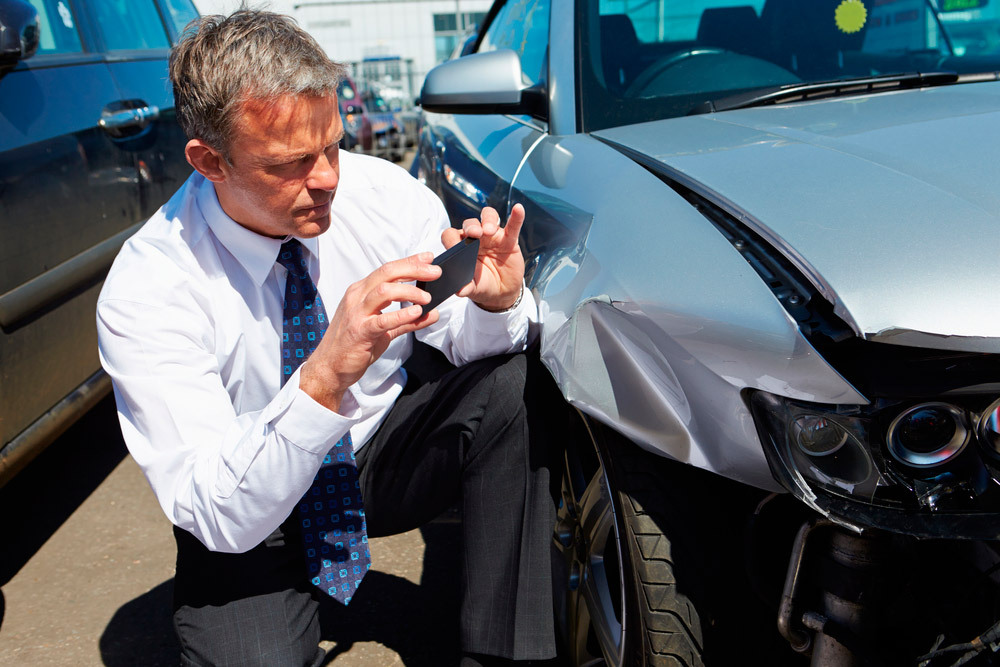
After a car accident, it’s important to understand your legal rights and options. Seeking legal counsel from a qualified car accident lawyer can be crucial in navigating the complex legal processes and securing the compensation you deserve. Finding the right lawyer can make a significant difference in the outcome of your case.
Choosing a Car Accident Lawyer
Selecting the right car accident lawyer is a critical step in protecting your interests and maximizing your chances of a favorable outcome. Here are some key factors to consider when choosing a lawyer:
- Experience and Expertise: Look for a lawyer with a proven track record in handling car accident cases. Experience in negotiating with insurance companies and litigating complex claims is invaluable.
- Reputation and Client Testimonials: Research the lawyer’s reputation by checking online reviews, client testimonials, and bar association ratings. Positive feedback from previous clients can provide insights into their professionalism and effectiveness.
- Communication and Accessibility: Choose a lawyer who communicates effectively, listens attentively to your concerns, and is readily available to answer your questions. Clear and consistent communication is essential for a successful attorney-client relationship.
Comparing Qualifications and Experience
Evaluating the qualifications and experience of potential car accident lawyers is essential to ensure you’re working with a competent professional. Here’s how to compare their credentials:
- Years of Practice: Consider the lawyer’s years of experience in handling car accident cases. A lawyer with extensive experience may have a deeper understanding of the legal complexities and a wider network of contacts in the industry.
- Specialization: Some lawyers specialize in specific areas of personal injury law, including car accidents. Look for lawyers who focus specifically on car accident cases, as they may have specialized knowledge and expertise.
- Case Success Rate: While not always readily available, inquiring about a lawyer’s case success rate can provide an indication of their effectiveness in securing favorable outcomes for their clients.
Lawyer Fees and Payment Structures
Understanding the lawyer’s fee structure is crucial to avoid unexpected costs and ensure transparency in the legal process. Here are key aspects to consider:
- Contingency Fee Agreement: Many car accident lawyers work on a contingency fee basis, meaning they only receive payment if they secure a settlement or win a judgment in your case. The fee is typically a percentage of the total compensation received.
- Hourly Rate: Some lawyers may charge an hourly rate for their services. It’s essential to understand the hourly rate and the potential total cost involved.
- Additional Fees: Be aware of any additional fees, such as court filing fees or expert witness fees. Discuss these fees upfront to avoid surprises.
Questions to Ask Potential Car Accident Lawyers
Asking the right questions during your initial consultation can help you assess a lawyer’s suitability and make an informed decision. Here are some important questions to ask:
- What is your experience handling car accident cases?
- What is your fee structure?
- What is your strategy for handling my case?
- How will you keep me informed about the progress of my case?
- How will you handle communication with the insurance company?
- What are the potential outcomes of my case?
The Legal Process After a Car Accident: Car Accident Lawyers Near Me
After a car accident, it’s crucial to understand the legal process involved in pursuing a claim. This process can be complex, but understanding the steps can help you navigate it effectively.
The Steps Involved in a Car Accident Claim
The legal process following a car accident typically involves several key steps:
- Reporting the Accident: Immediately after the accident, you should contact the police to report the incident. This report will serve as official documentation of the accident, including details about the involved parties, the location, and the circumstances.
- Seeking Medical Attention: It’s essential to seek medical attention as soon as possible after the accident, even if you feel okay. This ensures your injuries are documented and treated promptly.
- Contacting Your Insurance Company: Inform your insurance company about the accident and provide them with all the necessary details. This includes the date, time, location, and any other relevant information.
- Gathering Evidence: Collect evidence related to the accident, such as photographs of the damage, witness statements, and police reports.
- Filing a Claim: Once you’ve gathered all the necessary documentation, you can file a claim with your insurance company.
- Negotiating with the Insurance Company: The insurance company will review your claim and offer a settlement. You have the right to negotiate this settlement to ensure you receive fair compensation for your injuries and losses.
- Potential Litigation: If you and the insurance company cannot reach a settlement agreement, you may need to pursue legal action. This involves filing a lawsuit and going to court.
The Role of Insurance Companies
Insurance companies play a critical role in the legal process after a car accident. They are responsible for:
- Evaluating Claims: Insurance companies will investigate your claim and assess the validity of your injuries and losses.
- Offering Settlements: They will propose a settlement amount based on their evaluation of your claim.
- Defending Against Lawsuits: If you file a lawsuit, the insurance company will defend against your claims.
Negotiating with Insurance Companies
Negotiating with insurance companies can be challenging. Here are some tips:
- Know Your Rights: Familiarize yourself with your rights as an insured individual.
- Be Prepared: Gather all the necessary documentation, including medical records, police reports, and photographs.
- Be Patient: The negotiation process can take time. Be patient and persistent.
- Seek Legal Counsel: Consider consulting with a car accident lawyer who can guide you through the negotiation process and protect your interests.
Potential for Litigation
If you and the insurance company cannot reach a settlement agreement, you may need to file a lawsuit. This can be a lengthy and complex process.
- Filing a Lawsuit: A lawsuit is a formal legal action filed in court to seek compensation for your injuries and losses.
- Discovery: The legal process involves a discovery phase where both parties gather evidence and information.
- Trial: If the case cannot be settled out of court, it will proceed to trial, where a judge or jury will decide the outcome.
Common Car Accident Injuries
Car accidents can result in a wide range of injuries, some of which may be immediately apparent, while others might take time to manifest. Understanding the common types of injuries sustained in car accidents can help you seek prompt medical attention and understand the potential long-term effects.
Whiplash
Whiplash is a common injury that occurs when the head is suddenly and forcefully thrown backward and then forward, often during a rear-end collision. This rapid movement can strain the muscles, ligaments, and tendons in the neck, leading to pain, stiffness, and headaches.
- Symptoms: Neck pain, stiffness, headaches, dizziness, blurred vision, fatigue, and difficulty concentrating.
- Long-term Effects: If left untreated, whiplash can lead to chronic pain, limited range of motion, and long-term headaches.
Back Injuries
Back injuries are another common consequence of car accidents. The impact of a collision can strain or damage the muscles, ligaments, tendons, and discs in the back, leading to pain, stiffness, and difficulty moving.
- Types: Common back injuries include sprains, strains, herniated discs, and spinal fractures.
- Long-term Effects: Back injuries can lead to chronic pain, limited mobility, and even disability if not properly treated.
Head Injuries
Head injuries are serious and can range from mild concussions to severe traumatic brain injuries. These injuries can occur due to the impact of the head against the interior of the vehicle or from the sudden deceleration of the body during a collision.
- Symptoms: Symptoms can include headaches, dizziness, nausea, vomiting, confusion, memory problems, and loss of consciousness.
- Long-term Effects: Severe head injuries can lead to permanent brain damage, cognitive impairments, and behavioral changes. Even mild concussions can have long-term effects, such as headaches, fatigue, and difficulty concentrating.
Broken Bones
Broken bones, or fractures, are a common injury in car accidents, especially in high-impact collisions. The force of the impact can cause bones to break or shatter.
- Common Locations: Broken bones commonly occur in the legs, arms, ribs, and pelvis.
- Long-term Effects: Broken bones can lead to pain, swelling, and difficulty moving. Depending on the severity of the fracture, it may require surgery and physical therapy for recovery. In some cases, broken bones can result in long-term pain, stiffness, and limited mobility.
Soft Tissue Injuries
Soft tissue injuries involve damage to muscles, ligaments, tendons, and other soft tissues. These injuries can occur due to the sudden and forceful movements of the body during a car accident.
- Common Locations: Soft tissue injuries are common in the neck, back, shoulders, and knees.
- Long-term Effects: Soft tissue injuries can lead to chronic pain, stiffness, and limited mobility.
Preventing Car Accidents
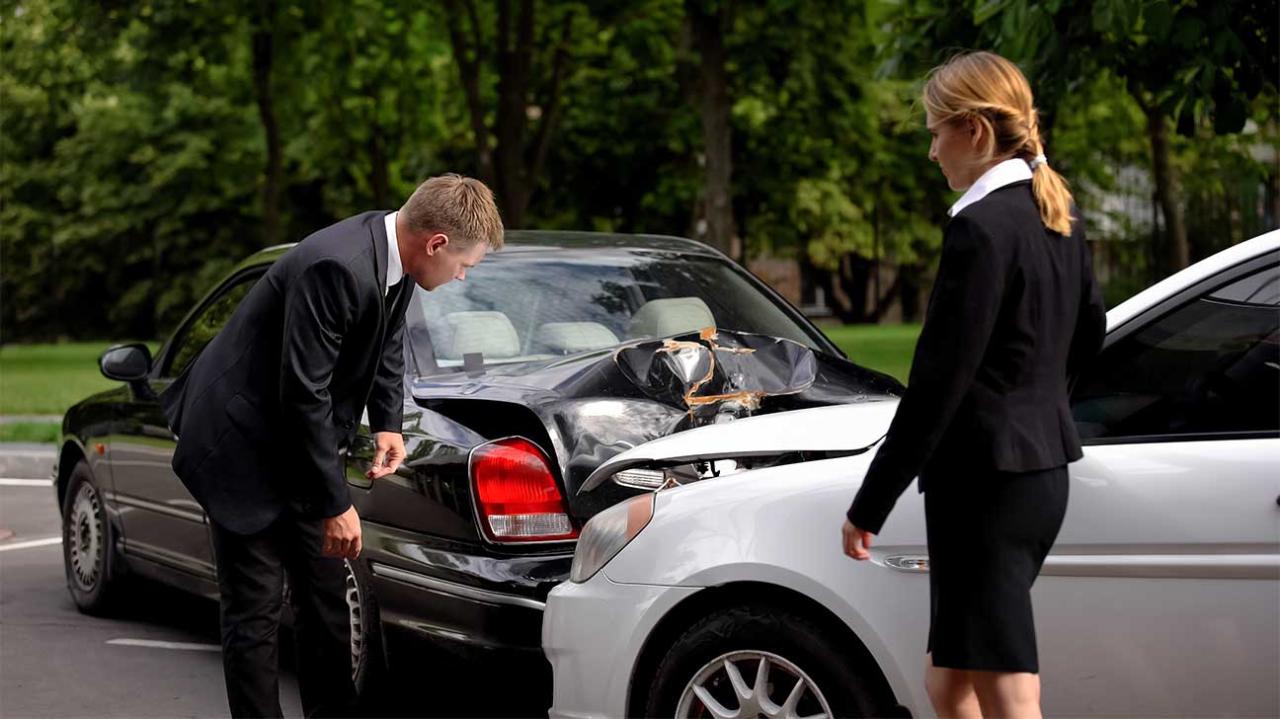
Preventing car accidents is crucial for ensuring the safety of yourself and others on the road. By adopting safe driving practices, maintaining your vehicle, and being aware of potential hazards, you can significantly reduce the risk of accidents.
Safe Driving Practices
Safe driving practices are essential for preventing car accidents. By adhering to these guidelines, you can minimize risks and contribute to a safer driving environment.
- Obey Traffic Laws: Following traffic laws, such as speed limits, stop signs, and traffic signals, is fundamental to safe driving. These regulations are designed to prevent accidents and ensure the smooth flow of traffic.
- Avoid Distracted Driving: Distracted driving, such as texting, talking on the phone, or eating while driving, significantly increases the risk of accidents. Focus solely on driving and avoid any activities that may divert your attention.
- Maintain a Safe Following Distance: Maintaining a safe following distance allows you to react in time to sudden stops or changes in traffic. This distance should be at least three seconds behind the vehicle in front of you.
- Be Aware of Your Surroundings: Constant awareness of your surroundings is crucial for anticipating potential hazards. Pay attention to other vehicles, pedestrians, cyclists, and road conditions.
- Drive Defensively: Defensive driving involves anticipating potential hazards and taking proactive steps to avoid accidents. This includes being aware of other drivers’ behaviors, scanning the road ahead, and being prepared to react quickly.
- Avoid Aggressive Driving: Aggressive driving, such as speeding, tailgating, and weaving through traffic, significantly increases the risk of accidents. Maintain a calm and courteous driving demeanor.
- Avoid Driving Under the Influence: Driving under the influence of alcohol or drugs significantly impairs judgment and reaction time, greatly increasing the risk of accidents. Always designate a sober driver or choose alternative transportation methods if you have been drinking.
Vehicle Maintenance
Regular vehicle maintenance is crucial for ensuring your vehicle is in optimal condition and minimizing the risk of accidents.
- Regular Oil Changes: Regular oil changes ensure proper lubrication of engine parts, reducing wear and tear and preventing engine failure.
- Tire Pressure Checks: Maintaining proper tire pressure is essential for optimal handling and braking performance. Underinflated tires can lead to blowouts, while overinflated tires can compromise handling.
- Brake Inspections: Regular brake inspections are vital for ensuring your brakes are in good working order. Worn brake pads or rotors can lead to reduced braking effectiveness, increasing the risk of accidents.
- Light Checks: Ensuring all your vehicle’s lights are functional is crucial for visibility, especially during nighttime driving.
- Windshield Wiper Maintenance: Worn or damaged windshield wipers can impair visibility, particularly during rain or snow. Ensure your wipers are in good condition and replace them as needed.
Distracted Driving, Car accident lawyers near me
Distracted driving is a major contributor to car accidents. It occurs when drivers are engaged in activities other than driving, such as texting, talking on the phone, or eating.
- Texting While Driving: Texting while driving is extremely dangerous as it requires drivers to take their eyes off the road and hands off the steering wheel. Even a brief glance at a phone can significantly increase the risk of accidents.
- Talking on the Phone: Talking on the phone, whether handheld or hands-free, can be just as distracting as texting. It can divert your attention from the road and impair your reaction time.
- Eating While Driving: Eating while driving can be distracting, particularly if you’re trying to handle food or drinks.
- Applying Makeup: Applying makeup while driving is highly dangerous as it requires drivers to take their eyes off the road for extended periods.
Defensive Driving
Defensive driving is a proactive approach to driving that involves anticipating potential hazards and taking steps to avoid accidents. It’s about being aware of your surroundings, understanding the behaviors of other drivers, and being prepared to react quickly to unexpected situations.
- Scan the Road Ahead: Continuously scan the road ahead, looking for potential hazards, such as vehicles, pedestrians, cyclists, and road conditions.
- Anticipate Other Drivers’ Actions: Be aware of the behaviors of other drivers and anticipate their potential actions.
- Maintain a Safe Following Distance: Maintain a safe following distance to allow for reaction time in case of sudden stops or changes in traffic.
- Be Prepared to React Quickly: Be prepared to react quickly to unexpected situations, such as sudden stops, lane changes, or pedestrians crossing the road.
- Avoid Distractions: Minimize distractions while driving, such as texting, talking on the phone, or eating.
Understanding Insurance Coverage
After a car accident, understanding your insurance coverage is crucial. Your insurance policy Artikels the financial protection you have in case of an accident. It’s essential to know what your policy covers and what it doesn’t to ensure you receive the compensation you deserve.
Types of Car Insurance Coverage
Different types of car insurance coverage provide protection for various situations. Knowing these options allows you to choose the right coverage for your needs.
- Liability Coverage: This is the most common type of car insurance and is usually required by law. It covers damages to other people’s property or injuries you cause in an accident. Liability coverage has two parts: bodily injury liability and property damage liability.
- Collision Coverage: This coverage pays for repairs or replacement of your vehicle if you are involved in an accident, regardless of fault. It covers damage caused by a collision with another vehicle, an object, or even a single-car accident.
- Comprehensive Coverage: This coverage protects your vehicle against damages caused by events other than collisions, such as theft, vandalism, fire, or natural disasters. It also covers damage caused by hitting animals.
- Uninsured/Underinsured Motorist Coverage: This coverage protects you if you are involved in an accident with a driver who doesn’t have insurance or has insufficient coverage. It can help cover your medical expenses, lost wages, and property damage.
- Personal Injury Protection (PIP): This coverage, also known as “no-fault” insurance, covers your medical expenses, lost wages, and other expenses regardless of fault. It is often required by law in some states.
Limits and Exclusions of Coverage
Each insurance policy has limits and exclusions that determine the extent of coverage.
- Coverage Limits: These are the maximum amounts your insurance company will pay for specific types of damages. For example, your liability coverage may have a limit of $100,000 per person and $300,000 per accident for bodily injury.
- Exclusions: These are specific situations or events that are not covered by your policy. For example, your policy may exclude coverage for damages caused by driving under the influence of alcohol or drugs.
The Role of Personal Injury Protection (PIP)
PIP is a crucial part of your insurance policy, especially in states with “no-fault” insurance laws. PIP coverage provides benefits regardless of who is at fault in an accident.
- Medical Expenses: PIP covers your medical expenses, including doctor visits, hospital stays, and rehabilitation.
- Lost Wages: PIP can help compensate you for lost income if you are unable to work due to injuries sustained in an accident.
- Other Expenses: PIP may cover other expenses related to your injuries, such as childcare or home healthcare.
Filing an Insurance Claim
After an accident, it’s important to file an insurance claim promptly.
- Contact Your Insurance Company: Immediately contact your insurance company and report the accident. Provide all necessary details, including the date, time, location, and involved parties.
- Gather Documentation: Collect all relevant documentation, such as police reports, medical records, and photographs of the accident scene and damaged vehicles.
- Complete the Claim Form: Your insurance company will provide you with a claim form. Fill it out accurately and completely.
- Follow Up: Regularly follow up with your insurance company to ensure your claim is being processed.
Legal Resources for Car Accident Victims
After a car accident, you may be overwhelmed and unsure of where to turn for help. Fortunately, numerous resources are available to support you during this challenging time. These resources can provide guidance on legal matters, financial assistance, and emotional support.
Government Agencies
Government agencies play a crucial role in assisting car accident victims. They offer various programs and services to ensure fair treatment and compensation.
- National Highway Traffic Safety Administration (NHTSA): The NHTSA is responsible for promoting highway safety and investigating vehicle defects. It provides information on vehicle safety regulations, recalls, and accident statistics. You can reach them at 1-888-327-4236 or visit their website at [https://www.nhtsa.gov/](https://www.nhtsa.gov/).
- Federal Motor Carrier Safety Administration (FMCSA): The FMCSA regulates commercial motor vehicles and drivers. If your accident involved a commercial truck, the FMCSA can provide information on safety regulations and driver qualifications. You can contact them at 1-888-327-4236 or visit their website at [https://www.fmcsa.dot.gov/](https://www.fmcsa.dot.gov/).
- State Department of Motor Vehicles (DMV): Your state’s DMV can provide information on driver’s licenses, vehicle registration, and accident reporting. They can also help you obtain copies of accident reports and other relevant documents. You can find your state’s DMV website through a simple online search.
Non-Profit Organizations
Non-profit organizations dedicated to helping car accident victims provide valuable support and resources. These organizations offer advocacy, counseling, and financial assistance.
- Mothers Against Drunk Driving (MADD): MADD is a leading organization dedicated to preventing drunk driving and supporting victims of drunk driving accidents. They offer resources, support groups, and advocacy services. You can contact them at 1-877-MADD-HELP (1-877-623-3435) or visit their website at [https://madd.org/](https://madd.org/).
- The National Safety Council (NSC): The NSC is a non-profit organization dedicated to promoting safety and preventing accidents. They offer resources on accident prevention, safety tips, and information on car accident statistics. You can contact them at 1-800-231-5862 or visit their website at [https://www.nsc.org/](https://www.nsc.org/).
- The American Automobile Association (AAA): AAA provides a wide range of services to its members, including accident assistance, legal aid, and insurance. You can contact your local AAA office for assistance. You can find their website at [https://www.aaa.com/](https://www.aaa.com/).
Legal Aid Services
Legal aid services offer free or low-cost legal assistance to individuals who cannot afford to hire an attorney. These services can help you understand your legal rights and options after a car accident.
- Legal Aid Society: The Legal Aid Society is a non-profit organization that provides legal assistance to low-income individuals and families. They offer a variety of services, including legal advice, representation in court, and mediation. You can find their website at [https://www.legalaidsociety.org/](https://www.legalaidsociety.org/).
- National Legal Aid & Referral Service: This service provides referrals to legal aid organizations in your area. You can contact them at 1-800-221-4700 or visit their website at [https://www.nala.org/](https://www.nala.org/).
- Local Bar Associations: Many local bar associations offer referral services to connect you with attorneys who provide legal aid or pro bono services. You can find your local bar association’s website through a simple online search.
The Importance of Documentation
Documentation is crucial in a car accident case. It provides irrefutable evidence that supports your claim and helps establish the circumstances surrounding the accident. This documentation serves as the foundation for your legal case, allowing your lawyer to build a strong argument on your behalf.
Gathering Evidence
The key to effective documentation lies in gathering comprehensive evidence that accurately portrays the events of the accident. This evidence can include:
- Photographs of the accident scene: Capturing the scene, including damage to vehicles, road conditions, and any visible injuries, provides a visual record of the accident.
- Police reports: The official police report documents the officers’ observations, witness statements, and any citations issued. This report serves as a neutral and unbiased account of the accident.
- Medical records: Medical records, including treatment notes, diagnoses, and bills, demonstrate the extent of your injuries and the associated costs. These records are essential in establishing the severity of your injuries and the impact on your life.
- Witness statements: Statements from eyewitnesses provide valuable insights into the events leading up to the accident, the actions of the drivers, and the overall circumstances. These statements can corroborate your account and strengthen your case.
Common Mistakes to Avoid After a Car Accident
The aftermath of a car accident can be overwhelming, leaving you feeling shocked and disoriented. During this time, it’s crucial to stay calm and make informed decisions to protect your health and legal rights. Unfortunately, many accident victims make mistakes that can negatively impact their recovery and compensation. Understanding these common pitfalls and taking preventive measures can significantly improve your chances of a favorable outcome.
Failing to Seek Medical Attention
It’s essential to seek medical attention immediately after a car accident, even if you don’t feel any immediate pain or injury. The adrenaline rush from the accident can mask symptoms, and injuries may not manifest until later.
- Delaying medical treatment can complicate your recovery and make it harder to prove the extent of your injuries in a claim.
- Failing to document your injuries can weaken your case and limit your compensation.
Always seek medical attention after a car accident, even if you feel fine.
After a car accident, seeking legal guidance from a skilled car accident lawyer is a crucial step towards safeguarding your interests and achieving a favorable outcome. Remember, navigating the legal system alone can be challenging, and a knowledgeable lawyer can provide invaluable support and expertise throughout the process.


